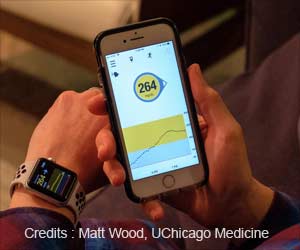A potential drug candidate CP 154,526 has found to block the euphoric feelings associated with drinking, something that may prevent alcoholics from relapsing.
There is hope for chronic alcoholics as a potential drug candidate CP 154,526 has been found to block the euphoric feelings associated with drinking..
Previous studies have shown that some people's brains become sensitized as a result of chronic exposure to alcohol. This change in the brain does not subside after people quit drinking. So when they begin consuming alcohol again, "they get a bigger jolt"."We showed we could block behaviour in mice that resembles this increased euphoria even after the animals had been given a lot of alcohol," said Tamara Phillips, Ph.D., professor and vice chair of the behavioral neuroscience department at OHSU and a research scientist at the Portland Veterans Affairs Medical Centre.
"That's what you want in a treatment, because we don't get to people until after they become addicted to alcohol," Phillips added.
The research team from Oregon Health and Science University has also identified a brain receptor that stimulates euphoric feelings from alcohol.
Alcohol consumption causes the body to release a substance known as "corticotrophin-releasing factor" or CRF. It activates receptors in the brain.
Phillips and her team concluded that brain receptor called CRF1 appears to be involved in this heightened pleasure sensation.
Advertisement
They found that mice without the CRF1 receptor did not experience the euphoric jolt the normal mice demonstrated.
The results may be particularly applicable to stress-induced relapse. That's because the CRF1 receptor also triggers the body's response to stress.
According to Phillip, the new drug may have implications for PTSD patients
"I think if you block this receptor, you might be able to decrease drinking in response to PTSD."
The study appears in the Proceedings of the National Academy of the Sciences.
Source-ANI
RAS/L












